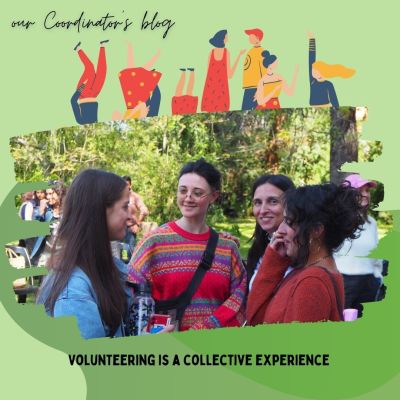Throughout the world Christmas is a time for reflection, fun and gathering but this can be expressed in many different forms. One of the many advantages of living in a multi-national environment in such a vibrant continent as South America is that we can experience a collection of different cultures and traditions and find something a bit different and appealing in the midst of familiarity. Of course what all our volunteers have in common is the want to embrace the Argentine way of celebrating Christmas. By its very nature Argentina is a country made up of a mezcla of backgrounds, customs and progressive development and so it was with little surprise that the festive norms I found when researching had some things in common with the other nations currently represented throughout our organisation. Like their European ancestors, Christmas decorations are a big part of the festive season, little trees are decorated in offices and houses all through the nation, and usually this joyous task begins on the 8th December. Across the globe the nativity scene is famous and in front of Congreso each year a Pesebre is put up (see below). Personally I find that’s where the similarities end.
Apart from the searing temperatures of 30-40⁰ the meals consist of entirely different ingredients with cold salads and an Asado. Partly due to the heat, this is different to the traditional roast turkey meal I’m used to in Ireland and England. The most striking aspect is that it is celebrated on a different day!It was surprising at first to hear this fact but many of the volunteers have told me that I am, in fact, the strange one. I’ve been told this many times before but it was the first Christmas-themed insult I’d had in a while. Turns out many countries celebrate the night of Christmas eve with presents and a big family meal and reserve Christmas day itself for more tranquil events such as visiting Churches.
The Christmas cultures I’ve experienced in my time have tended to use Christmas Eve as a time to give thanks to those that invented alcohol by drinking copious amounts of egg-nog (and anyone who hasn’t heard of this drink, I implore you to look it up and make it ASAP) and save the traditional religious and family celebrations for the 25th. VG House had a few heated debates in my company over what meals were to be eaten between them. It seems Eddy, our New Zealander volunteer will be forced into adjusting his calendar to celebrate a day early as he is dominated by a European presence. The Germans found themselves arguing with the Polish (again) this time over whether to feature fish, meat or simply vegetables on the menu. Best wishes to them during their private, international revelry and here’s to hoping the global nature of this organisation means the holidays will be full of new and enjoyable experiences. Furthermore this year the volunteers that chose to stay in Argentina for the Christmas period celebrated in style with our version of an ‘office Christmas party’. With snacks, a lot of wine, Caipirinha and music everyone met at la casa and, thanks to the ideas of our long-term intern Maamoun, brought some small gifts for a Danish Christmas game. The idea was to collect (and then steal) as many gifts from the pile as possible by rolling a “double” with two dice. It may not be obvious from the included photos but things definitely got quite competitive and borderline aggressive as gifts began to be rumoured more desirable than others. There then followed Laura’s ‘get the chocolate from your forehead to your mouth without using your hands’ game which requires no further explanation. Everyone at Voluntario Global would like to wish a Merry Christmas and a great New Year to all our supporters and thank them for all the help this year.



